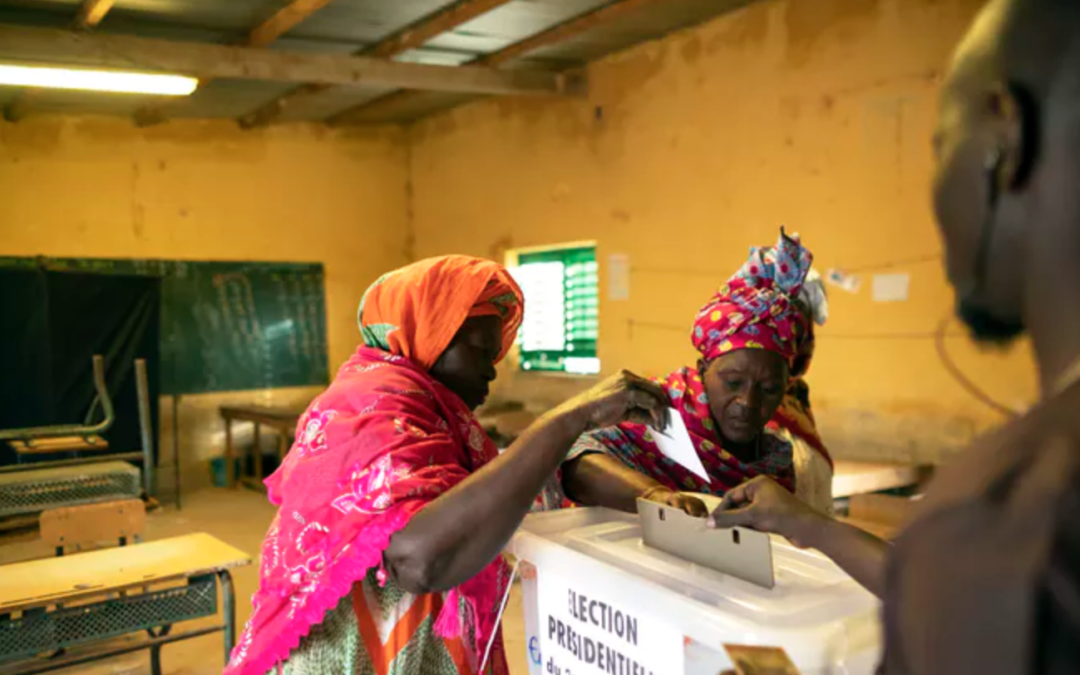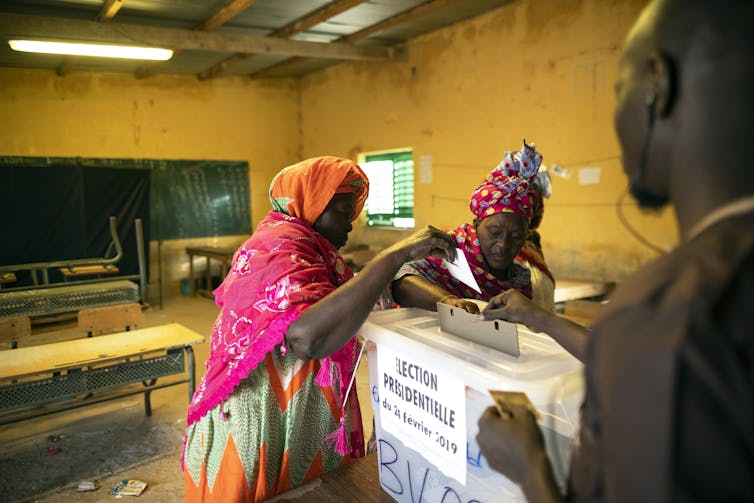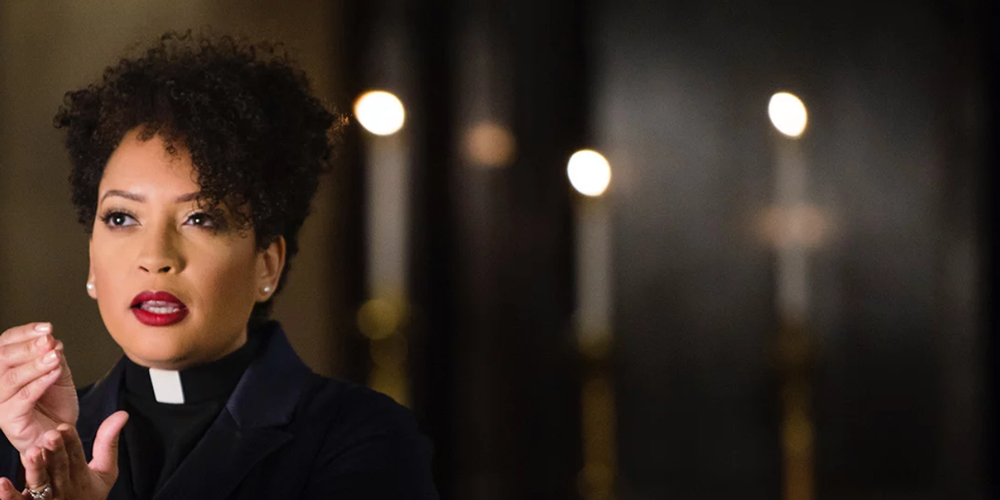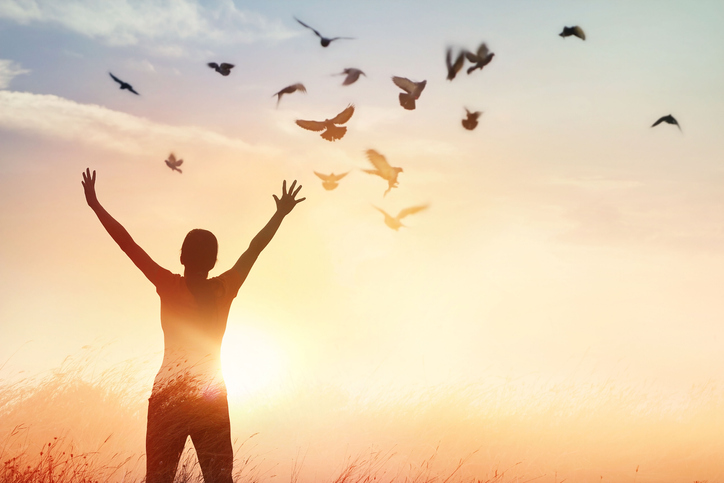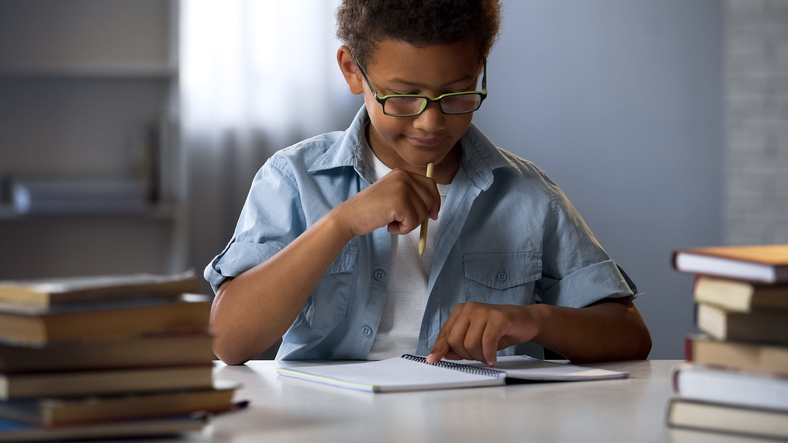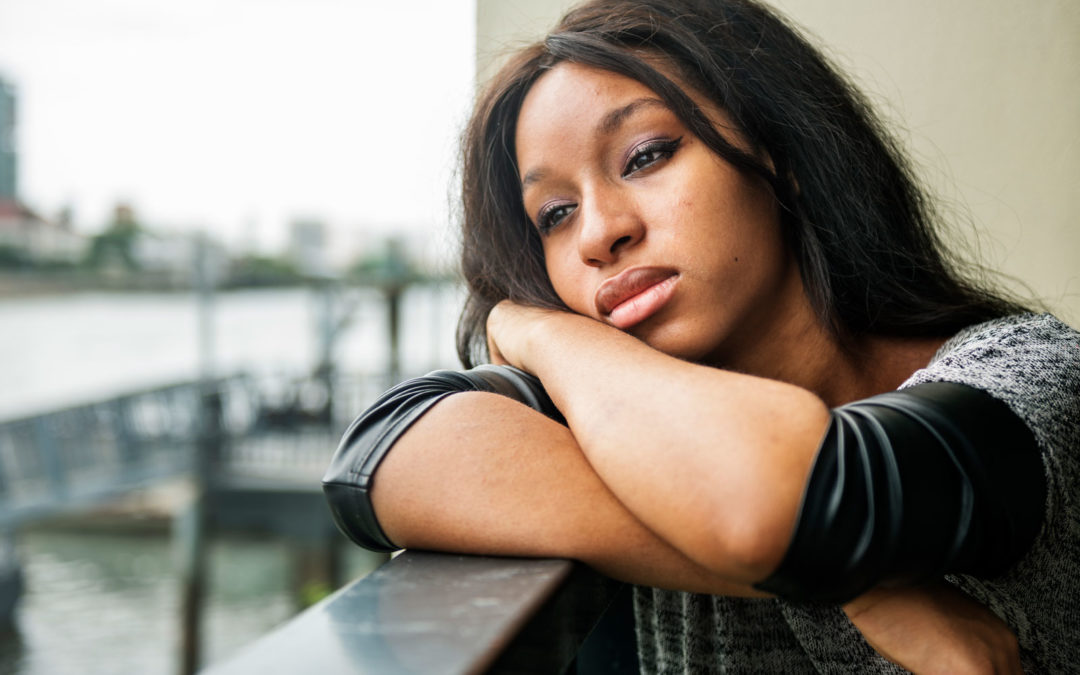
Black women sound the alarm about domestic violence
“Her story about Domestic violence | The Women in my church” — Video Courtesy of AndThis
This article was originally published on Mississippi Today.
LAUREL — On a windy afternoon in March 2002, Ishaunna Gully hoisted her young son onto her hip and listened intently as her grandmother presented her case.
The grandmother had a bad feeling about Ishaunna’s ex-boyfriend, Sammy, who had been controlling and verbally abusive during their year-long relationship. In the last few days, he was behaving erratically and making violent threats towards Ishaunna and her son from a previous relationship.
The first time Sammy attacked her, he only escaped arrest because Ishaunna declined to press charges. Days after that incident, fearing he might try to kidnap her son, Ishaunna sought a restraining order at Hattiesburg police headquarters but was told she needed to come back the following week.
Because of Sammy’s sudden violent temperament, Ishaunna’s grandmother didn’t want her to be home alone or even go out at night. But Ishaunna, who was a few months shy of completing a business-administration degree at Antonelli College, wanted to unwind from the stressful week before going to work the next day. She decided to stay home, but agreed to let her son spend the night with her grandmother.
“At that point, I was tired of running from him,” Ishaunna said. “This is my house, and no one is going to run me away.”
It was one of the last times Ishaunna remembers being able to stand.
Later that night, the wind howled outside as she rested in her living room sipping a cranberry-and-vodka and watching a late-night talk show; the aroma of cinnamon-apple scented candles hung in the air.
Around 10 p.m., there was a knock at the door. It was Mitchell Jones, the father of Ishaunna’s son, with milk for their son, a request made at the behest of her worried grandmother.
As soon as she opened the door for Mitchell, her cellphone rang showing the name of Sammy’s mother on the caller ID display.
“Call the police! He is going to kill you and then himself,” Sammy’s mother said.
No sooner than she told Mitchell to remain inside, she heard the security system beep, meaning that the deadbolted interior door that leads into the living room had been opened. A thud. Sammy, gripping a pistol, crashed through the door and pulled the trigger, striking Mitchell in the stomach as he fell to the floor. A second bullet struck Isuanna in the back. After gaining his balance, Sammy moved toward Isuanna preparing to fire, but he was shot in shoulder by Mitchell. The men exchanged several more shots, and Sammy fled.
“When he shot me, immediately I knew that I was paralyzed,” she said.
As she lay on the floor, her consciousness fading, Ishaunna’s mind raced.
“I thought to myself: this cannot be the man who said he loved me and wanted to marry me,” she said.
Video Courtesy of The Riverside Church
Our dirty laundry
Ishaunna had to be airlifted to a hospital in Jackson but survived the shooting. Doctors said she almost died. However, the bullet to her spine did result in paralysis from the waist down. Today, she uses a wheelchair.
Sammy was arrested at Forrest General Hospital in Hattiesburg and charged with aggravated assault. A jury found him guilty of aggravated assault and he was sentenced to 40 years in prison with 20 suspended. He served 10 years.
Last year, Laurel (population 18,493) was also the site of the murder of 24-year-old Davokiee Ann Jackson, a mother of two. Jackson’s boyfriend, Eric House, was named the primary suspect and later surrendered to police.
“Domestic violence is a serious issue. Davokiee’s story has to be told, and she has to be remembered to prevent things like this from happening,” said Tracie Smith, Jackson’s aunt, with tears in her eyes at a domestic-violence awareness event last fall.
But the stories of women like Ishaunna, Davokiee and thousands of African-American women often go untold even though black women are more likely to experience domestic or intimate partner violence than women of other races.
The U.S. Centers for Disease Control and Prevention estimated in 2014 that four in 10 black women reported experiencing violence from an intimate partner at some point in their lives, the highest among all racial groups.
The CDC also found that black women are murdered by domestic partners more than any race of women, with 57.7 percent of black women killed by a partner dying from a gunshot wound.
Eighty-five percent of black females killed by males were between the ages of 18 and 65. The average age of black female homicide victims was 35 years old, the agency found.
Overall, 53 percent of all murders of women between 2003 and 2014 involved a domestic or intimate partner.
In a 2017 study with data gathered between 2010 and 2012, the CDC estimated that 458,000 women in Mississippi were victims of sexual violence, physical violence and/or stalking by an intimate partner.
But intimate-partner violence in the black community has come into renewed focus in the era of Me Too, a movement started by activist Tarana Burke a decade ago that gained new life in recent years with revelations that scores of powerful men sexually abused and harassed women for decades.
The tales of black women who have experienced violence at the hands of black men have often not come to the fore. However, a number of high-profile cases — such as that of the Chicago-born R&B artist’s history of sexual abuse highlighted in the documentary “Surviving R. Kelly” — has sparked dialogue in the African American community and led to calls to listen to black women and protect black girls.
The South, experts say, present a unique set of challenges because of the culture’s reverence for religious principles, the endurance of ideals about masculinity, gun culture, poor education and poverty.
“When Men Murder Women,” a 2017 report of the Washington, D.C.-based Violence Policy Center ranked the states by rates of females murdered by males. Of the 10 highest ranked, five were in the South. Mississippi ranked No. 17 in the study.
“The reason I believe black women are victimized more is because of the disproportionate experience of violence in the home, schools, on jobs and in our neighborhoods,” said Eva Jones, founder of Butterflies of Grace Defined by Faith, a Mississippi-based non-profit organization that empowers women and teens whose lives are directly and indirectly impacted by domestic violence, sexual assault and human trafficking.
“African American women are often fearful of reinforcing the stereotype of black men being violent. Although I can be debated on this, I believe this goes back to slavery,” Jones said. “Also, African American people often don’t trust the (criminal-justice) system, so they won’t tell because they feel it won’t work in their favor.”
She also points to a key African American cultural norm: “There is a saying in the community, ‘What happens in this house, stays in this house,’ which means, ‘Don’t air our dirty laundry in our community.’”
The Rev. C.J. Rhodes, the pastor of Mount Helm Baptist Church in Jackson points to other cultural teachings in the black community. For example, men sometimes manipulate women who were raised in the church to believe that no matter what problems exist “there won’t be any life outside of this marriage.”
“In some cases, with very, very religious women from certain church traditions, if (marital issues) are expressed to the pastor or other members of the church, there has been this history of saying, ‘Baby, just take it. Love your husband. Pray for your husband, and God will do something in the end. Tragically, and unfortunately, she dies as a result of his violence,” Rhodes said.
“For any number of reasons,” Rhodes adds, “African Americans don’t like to get help outside of faith traditions or not talk about it at all, so they don’t go to the therapist, they don’t go to the pastor until it’s too late. Then everyone is saying, ‘Why didn’t they talk about it?’”
Not talking about it is part of what he calls “the contradictions of respectability.”
“You don’t tell anybody what you’re going through at home,” Rhodes said. “You put on this façade that everything is O.K., so you go to church, to school and if you’re getting hit, cover it up with makeup or wear shades,” Rhodes said.
“You create this image of ‘Everything’s O.K.’ because you’re afraid that if anyone gets in your business they’ll talk about you.”
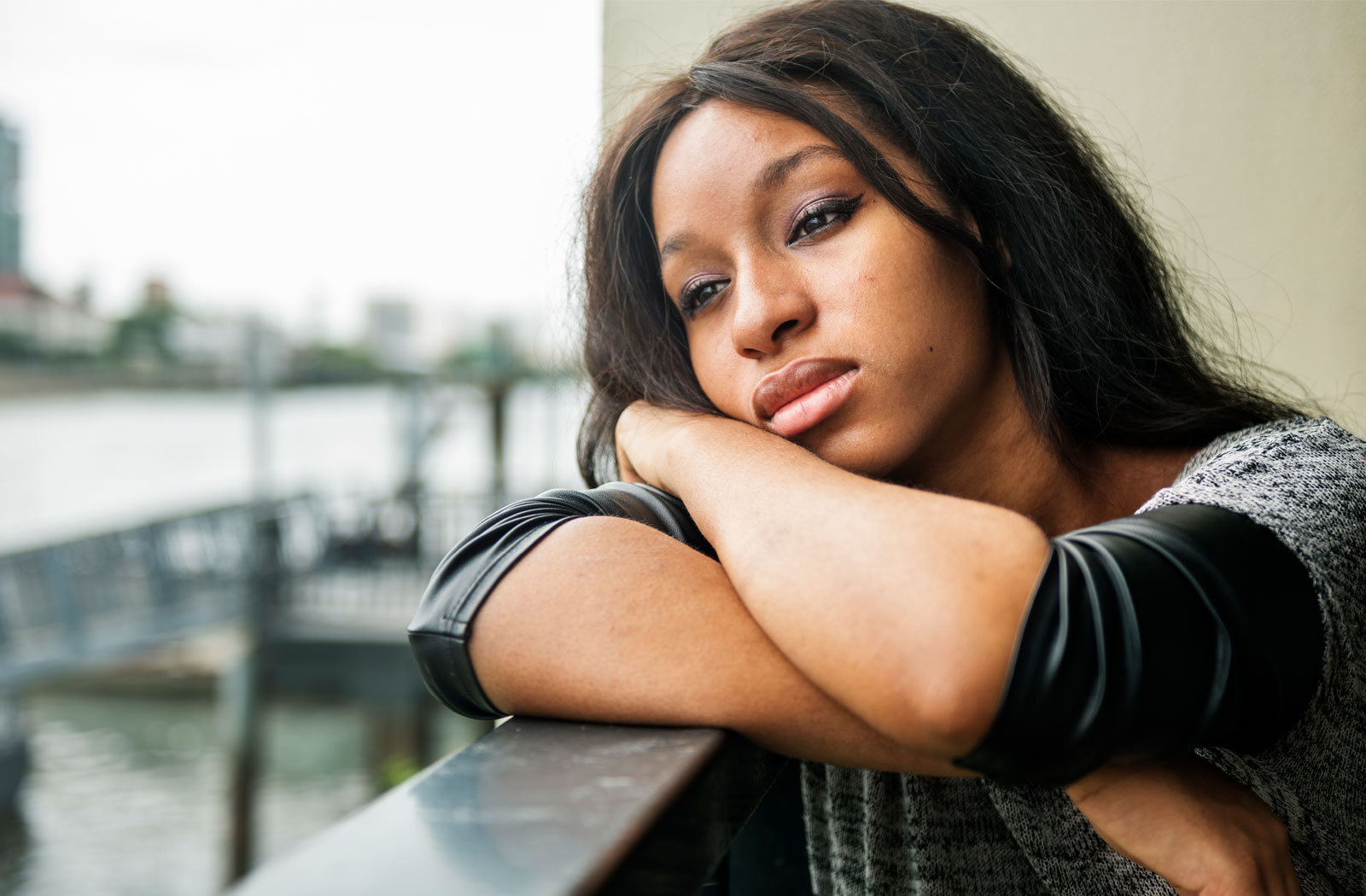
Patterns of behavior
Ishaunna tried to keep her and Sammy’s business out of the streets. The couple met in 2001 and dated for about a year until she could no longer bear Sammy’s jealousy.
“He was very controlling and had to know my every move,” she said. “I couldn’t really go out with friends without him somehow showing up there.”
After the relationship ended, Sammy revealed a violent temperament he had not shown while they dated. One day, Ishaunna met with Sammy in the parking lot of a barbecue restaurant to retrieve a cell phone she left with him. A relative had dropped Sammy off so he asked Ishaunna for a lift after giving her the phone.
“You can drop me off. I won’t bother you,” Sammy told her.
As they cruised down 4th Street, Sammy started strewing the contents of her purse around the car and ripping at her shirt. A Hattiesburg police officer noticed the car swerving as Ishaunna fought Sammy off and pulled them over. Sammy was detained when the police officer noted her ripped shirt, but Ishaunna did not ask that Sammy be arrested. She didn’t want to see him locked up — she just wanted him out of her car, and out of her life for good.
The police drove him home.
Days later, after receiving a threatening call from Sammy blaming her for his near arrest, she visited the Hattiesburg Police Department to ask about getting a restraining order or having the police take some other kind of action.
It was the end of the week, and the officer told her to come back the following Monday. That same police officer arrived at the scene of her shooting, she recalls.
According to the CDC, about 11 percent of victims of intimate partner violence-related homicide experienced some form of violence in the month preceding their deaths, and arguing and jealousy were common precipitating circumstances, the agency found.
“You have to understand that it is about a pattern of behavior,” said Wendy Mahoney, executive director of for the Mississippi Coalition Against Domestic Violence.
Specifically, she adds, domestic violence involves coercive behavior where an individual uses their power and control within the intimate partner relationship to “humiliate, demean, degrade, embarrass and hurt the other individual.” She said the abuse can be emotional, psychological, financial, spiritual and, often, sexual.
Of course, couples disagree, Mahoney says, but not all spats rise to the level of domestic abuse. “What makes domestic violence is when it becomes a behavior and it is rooted in power and control,” she said.
Video Courtesy of Markay Media
Why didn’t I just leave?
Eve Williams, a Sharon, Miss. native, saw how central power and control are to abuse during her 28-year marriage to a minister, which ended after a brutal beating that resulted in a hospital stay. It started five years into the marriage, when he beat her and dragged her around the house.
In hindsight, she says she saw it building up over time.
“Things happen, and before you know it you are caught in a situation where you are asking yourself, ‘How did I get here?’” Williams said. “Things were up and down throughout the marriage, but I had thought we had gotten to a place where we were good, but out of nowhere things went bad.”
“I shut down. I literally shut down. I was in shock. I didn’t talk about it for two years, nobody knew about it. I was mad at myself for years after that because I asked myself, ‘Why didn’t I just leave?’ If I would have left then, I wouldn’t have almost lost my life years later.”
There are many reasons why women don’t simply walk away from abusive partners, including economic barriers such as the inability to save up for travel or pay the deposit for a new place or utilities, say advocates who work with abuse victims.
In 2017, Mississippi utility regulators adopted a rule allowing women referred from domestic-violence shelters to put off paying utility-deposit fees so they can establish accounts in their own names.
Mississippi’s domestic violence statute covers simple assault, aggravated assault, simple domestic violence, simple domestic violence third, aggravated domestic violence and aggravated domestic violence third; each charge carries a different penalty.
In 2017, Mississippi became a flashpoint for national outrage when then-state Rep. Andy Gipson, a Republican, blocked legislation establishing domestic violence as the 13th ground for divorce, saying at the time, “We need to have policies that strengthen marriage. If a person is abusive, they need to have a change in behavior and change of heart.”
After the backlash, Gipson relented and pushed through a bill that broadened the ability to cite domestic violence as a reason to end a marriage, but did not establish domestic abuse as a ground for divorce.
Lawmakers have filed several domestic-violence related bills, including measures to prohibit people convicted of domestic violence from carrying weapons, to establish that communications between abuse victims and advocates can remain confidential, and to establish domestic-abuse courts.
Despite these recent changes, Mahoney says escaping domestic violence is tough particularly for poor women and women of color, who in Mississippi tend to have less access to financial resources. She notes that most of the women in the shelters her organization operates are African American.
And black women in Mississippi face the highest wage gap in the nation when compared to white men. According to a report published last August as part of the Black Women’s Equal Pay Day campaign, black women working full-time, year-round earn 56 cents on the dollar less based on median wages compared to white non-Hispanic men. The study also found that the disparity means a black woman could make $830,800 less than the average white man over the course of a 40-year career.
“If you think about it, it is mostly individuals with low socioeconomic status and they may not have any other resources or support to help them,” Mahoney said.
‘Look at me’
More than fifteen years have passed since the night Ishaunna Gully-Bettis lost her ability to walk, and nearly her life.
Today, she works for a non-profit organization call LIFE (Living Independent for Everyone) of MS, which works in 17 Mississippi counties. She also helps young people with disabilities with peer counseling, advocacy, information and referrals, independent living skills and transition services to equip them for living independent lives.
She is also a Christopher Reeve peer mentor for the state of Mississippi, counseling people with new spinal cord injuries and teaching them how to regain their confidence and live self-sufficiently.
“I have learned that life is really what you make it. Sometimes in life you can’t control or change what people do to you but you can control how you react or deal with it. I am no longer the victim but a survivor — an overcomer,” Ishaunna told Mississippi Today, stressing that she has forgiven Sammy.
“God gave me a second chance at life. I felt the grace and mercy that God showed me and I believed he deserved the same thing,” she says.
Eva Jones said it’s important to make women feel safe when they ask for help and are ready to talk about the violence they are experiencing.
“You have to realize that until a person is ready to get out of that, you can talk to them until you are blue but they have to be ready to get out that abusive situation,” Jones said. “They have to make the decision.”
Advocates also urge men to make better decisions — and to encourage their peers to do the same. In 2014, the Mississippi Coalition Against Domestic Violence launched a men’s working group in the wake of the viral video of professional football player Ray Rice knocking his fiance unconscious in an elevator.
“Understanding … that men are more responsive to other men, we set out to encourage men to stand up against domestic violence,” reads a newsletter the organization published promoting the program, which urged men to pledge to be a “stand-up guy” against domestic violence.
Eve Williams finds strength through writing poetry. One particular poem she wrote when she was 16, has helped her to cope with sexual abuse that tormented her as a child.
Last fall, Williams recited her poetry in front of an audience at the Mississippi Capitol for a domestic-violence awareness month observation. For her, the poem wasn’t just for introspective healing. She hoped it would help heal others who have had similar experiences.
Her poem, titled “Me,” reads:
Look at me
Can’t you see?
I am as beautiful as can be?
God created me just like you, so you should feel the same way too
Don’t let anybody put you low
When I look in the mirror, I know what and who I see
Somebody, somebody, and that somebody is me.
And I may not be perfectly wise, perfectly witty, or as perfect as you want me to be
But I will always, always, always be perfect
The way God created me to be
About Eric J. Shelton
Eric J. Shelton is a 2018 corps member in Report for America, a national service program that places talented journalists in local newsrooms, and joined the team as Mississippi Today’s first photojournalist. A native of Columbia, Eric earned his bachelor’s in photojournalism from the University of Mississippi. He has worked as a staff photographer for the Natchez Democrat and Texarkana Gazette after serving as photojournalism intern for the Associated Press. He was a multimedia journalist for Abilene Reporter-News, chief photographer for the Hattiesburg American and photo editor for the Killeen Daily Herald before joining Mississippi Today’s team in June 2018. Eric’s photojournalism has won awards from the Mississippi Associated Press Managing Editors and the Arkansas Press Photographers Association.

